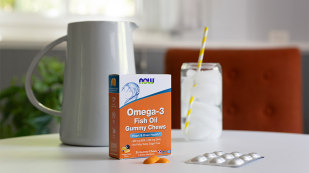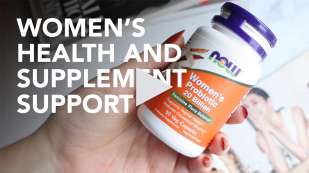25% off a $40+ order with coupon code:
FLOWERS†Excipients: Functional Ingredients Used in Dietary Supplements

What are excipients?
If you’re like most health-conscious individuals, you’ve probably spent your fair share of time trying to make sense of product labels.
While you may find the ingredients you’ve been looking for listed on the label, you’ve also probably stumbled upon a number of unfamiliar ingredients.
Many of these ingredients are what we refer to as ‘excipients’ – substances that contribute functional and structural characteristics to various forms of dietary supplements.
Rarely do excipients contribute any significant nutritional benefit. Instead, excipients:
- Make it easier for you to consume and your body to use “active ingredients” comfortably and safely.
- Ensure the production of high-quality products on a consistent basis using high-speed processing equipment.
Excipients – used wisely – are a necessary part of supplement manufacturing.
The use of non-toxic excipients allows our processing equipment to function smoothly and without gumming up. In the long run, this helps safeguard the integrity of the supplements being produced. Although excipients typically do not contribute significant nutritional benefits, other than a little fiber, their function remains essential for processing certain products efficiently.
Like many manufacturers, NOW® uses excipients in our formulations but only when necessary to improve the formula. NOW aggressively works to minimize or completely avoid the use of excipients whenever possible.
- NOW provides complete disclosure of all excipients used on every product label.
- NOW uses food grade or pharmaceutical grade, vegan-friendly, non-GMO excipients.
- NOW's list of approved excipients includes silica, stearic acid, cellulose, and rice flour.
- Potassium sorbate and acidifiers are used sparingly, as needed, in liquid formulations.
- We have been phasing out the use of magnesium stearate in tablets and two-piece capsules in response to consumer preference.
But why? Why even bother to use excipients in dietary supplements?
Here’s why excipients are standard in dietary supplement manufacturing:
- Flow Agents: Powdered excipients, such as lubricants and anti-caking agents, are used to help materials used to fill tablets and dry capsules flow with minimal resistance during processing steps. These non-toxic and vegetarian-friendly compounds include silicon dioxide, cellulose, and stearic acid. Non-toxic lubricants also allow tablets to be punched and ejected without sticking to the equipment. This ultimately results in products of much better physical quality and improves manufacturing efficiency, reducing costs to consumers.
- Binders: Cellulose-type binders hold ingredients together to form tablets. Otherwise, pressed tablets would eventually start to prematurely crumble. Cellulose is a simple food-grade wood-pulp derivative. It simply is a non-digestible fiber when consumed. While primarily used to thicken liquid formulations, gums are colloids that also hold ingredients together in the liquid. They include guar gum, xanthan gum, acacia gum, and cellulose gum. Like cellulose, colloid gums have some nutritional benefits as dietary fiber. These are all from plant sources.
- Carriers: When dealing with supplement ingredients that are used in tiny amounts, such as in micrograms (mcg, or millions of a gram), we often need to use carriers to disperse them evenly and fill the capsules or tablets. Trace ingredients – like chromium, selenium, iodine, folates, and biotin – can even be difficult to detect by the naked eye due to their very small volume. NOW typically uses rice flours or cellulose as carriers because they are hypoallergenic and naturally occurring complex carbohydrates.
- Acidifiers and potassium sorbate are essential components in some of today’s liquid formulas. Here’s why: Liquid formulations typically contain water. Water provides a favorable environment for microbial growth, especially if the liquid is not acidic enough to discourage mold or other undesirable microbes. In order to prevent mold, acidifiers and/or potassium sorbate - a mild nature-identical preservative - may be used. Heat processing can sometimes be used as an alternative to acidifiers in preventing microbial growth. However, many NOW® products contain heat-sensitive ingredients, thus making a cold-processed stabilized product preferable. Exposure to microbial contamination in the home after opening argues for proactively preventing the growth of those organisms that spoil the product. Acidifiers are safe for human consumption and commonly found in many fruits. They include citric acid, malic acid, tartaric acid, and aspartic acid. All are derived from vegetarian sources.











